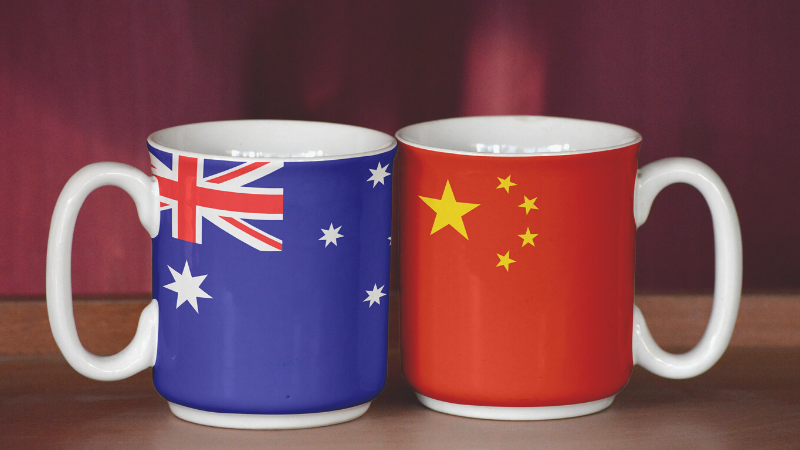PERSPECTIVES | On being ‘very different countries’: AUSMIN and China’s rise
August 04 2020

During discussions with American thinkers, analysts and officials in New York and Washington DC in late 2017, one particular conversation gave a chilling insight into how some see the ultimate strategic calculations in US-China relations.
In a wide-ranging reflection on the steps that President Trump had already taken to re-establish the credibility of US deterrence, one interlocutor, now an adviser to Secretary of State Mike Pompeo, evidenced the bombing of Syria, the sending of US bombers over the Korean peninsula and the push for tougher UN sanctions on North Korea. When asked how the administration’s institution of regular freedom of navigation operations in the South China Sea could overturn the unilateral Chinese facts on the water there, the reply was blunt. China’s possession of islands was simply of no consequence, I was told, since they would be easily ‘obliterated in a war’.
One of the abiding legacies of Trump’s term in office has been his radicalisation of the elite American tone towards China. Across the political spectrum, with the occasional exception – some of those advising Biden are rejecting the ‘new Cold War’ moniker – China is now seen as an existential strategic and ideological rival. Notwithstanding that Chinese actions have themselves played the major part in prompting this reflex, American exceptionalism has once more found its requisite nemesis.
This stance was given its clearest articulation yet in Secretary of State Pompeo’s speech at the Nixon presidential library in the week leading up to the recent AUSMIN meetings, in which he called on the ‘free world’ to ‘triumph over this tyranny’. Pompeo’s appeal to ‘empowering’ the Chinese people, as opposed to the Chinese Communist party, echoed similar remarks by Deputy National Security Adviser Matt Pottinger in May. And as Pompeo remarked, his purpose in Yorba Linda was to put the capstone on a series of speeches on US China policy by National Security Adviser Robert O’Brien, Attorney General Bill Barr, Defence Secretary Mark Esper and FBI Director Christopher Wray. Even if Trump himself is not a true believer in regime change there can be little doubt that the ‘mission’ of which Pompeo spoke – that ‘we must induce China to change’ – has broad backing across the administration.
But just as it shows an America gearing up for the long haul in its rivalry with China, just as it trumpets that it will not easily cede its primacy in Asia, the missionary zeal upon which such a declaration is based is likely to alienate the very allies it seeks to assuage. No hint is there in these speeches of any attempt to find a geopolitical modus vivendi with China, a position that makes this White House’s approach more susceptible to disruptive discontinuity.
It is surely telling that no senior Australian minister, and certainly not the prime minister, publicly backed this suite of American statements. What is becoming clearer now is that the Morrison government is not going to endorse the consensus in Washington that US-China strategic and ideological rivalry amounts to a new Cold War. Time and again the prime minister has refused to characterise the relationship or the current strategic circumstances in this way. Australia certainly pushes ahead with ever deepening alliance cooperation – the AUSMIN communiqué was notable for its sharper language on China in terms of the South China Sea, Taiwan, cyber-warfare, foreign interference, Hong Kong, Xinjiang, 5G, non-proliferation and force posture, among other issues – but Canberra held its nose – and its nerve – and looked the other way at the prospect of getting too close to an American ideological crusade against China.
This is why the markers laid down by Australian ministers in Washington are important. Foreign Minister Marise Payne said pointedly that ‘the Secretary’s speeches are his own’, that ‘Australia’s positions are our own’, and, perhaps even more crucially, that Australia and America ‘are very different countries’. Furthermore, she stressed that Canberra had no intention of ‘injuring’ its relations with China. Likewise, Defence Minister Defence Linda Reynolds emphasised in a press interview following the meeting that the two governments are ‘not completely aligned’, which, she added, ‘is as it should be’. This is not the first time Australia has distanced itself from the Trump administration, but it is surely the most emphatic.
No doubt these comments would have surprised some in Washington – especially since the orthodoxy there is that Australia constitutes an exemplar of how to ‘push back’ against the China challenge. But what it meant, too, was that the language of ‘mateship’ suddenly looked more of an habitual adornment than it did an argument in its own right.
The statements by Payne and Reynolds are significant for two key reasons. The first is that it now appears that the Australian government, without directly saying so, has rejected the idea of regime change in China. The second is that if indeed that is the case, it represents a significant departure in how Australian governments approach alliance management.
In the Vietnam era for example Australian leaders were as ideologically gung-ho as their American counterparts in expressing their commitment to the cause in the crudest ideological terms. Similarly, in the Iraq War, even though the ambition of turning Iraq into a bastion of democracy at the heart of the Middle East did not necessarily lead the arguments used to justify Australian participation, values-based rhetoric gained more prominence as the putative weapons of mass destruction failed to materialise.
Of course, when it comes to China’s recent aggression and assertiveness, the Australian government has quite properly demonstrated time and again that it will act to defend its values and principles. But it has now shown, even if without explication or justification, that there are limits to the kind of US position they will line up alongside. That surely, too, indicates a level of discomfort in Canberra with the way American intent is being conveyed.
Rarely has it been Australian diplomatic practice, save perhaps for the Whitlam-Nixon tensions over the alliance in 1972, or the initial Australian reactions to Britain’s European Economic Community (EEC) application in the early 1960s, to air in public the dirty laundry of its relations with great power protectors. But if indeed this eschewing of Pompeo’s ideological fervour is the Australian position it would be better for the government to articulate the reasons why. A region that is at times prone to question the authenticity of Australia’s diplomacy would no doubt pay attention. Key US allies undoubtedly share Canberra’s concern about the increasing bifurcation in this part of the world.
It might also be said that by not endorsing this American moral mission the government may be implicitly sending the message that it does not wish to see its ally embrace the folly of signing up to a long, drawn-out struggle with China, a struggle in which it may not prevail.
This is why the foreign minister’s emphasis on Australia and the US being ‘very different countries’ is so crucial. For the tendency of each country to misread or misunderstand the other remains. For Americans, there remains an unwillingness to recognise or accept Australia’s particular circumstances when it comes to dealing with China’s rise. For Australians, particularly those advocating a more hawkish position on China, it pays to be reminded of just how elemental remains the American exceptionalist impulse. It is precisely when ideological fervour outstrips capability and rationality that allies should really begin to worry.
James Curran is Professor of Modern History at Sydney University. He has previously worked at the Office of National Assessments, and in the Departments of Prime Minister and Cabinet and Defence.

